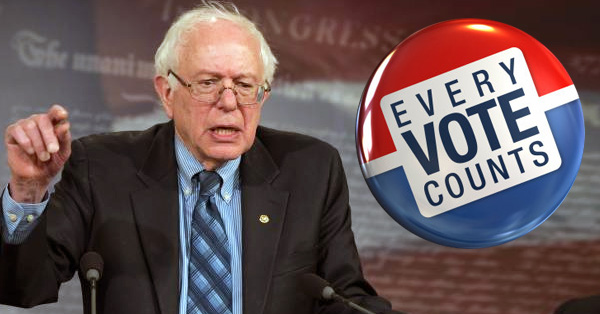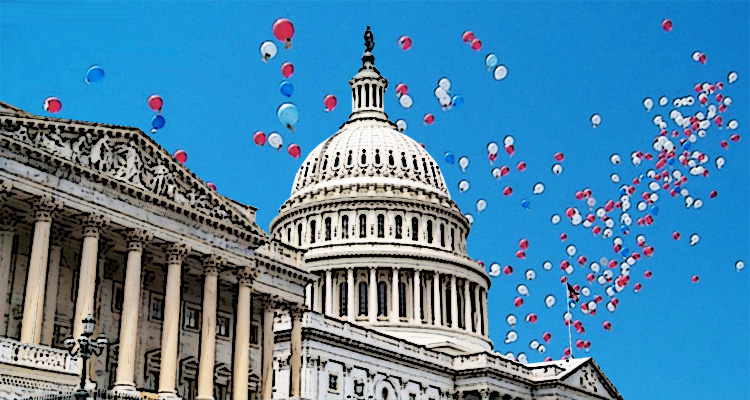
State laws that make voters show IDs at polling places have put a price on ballot access and eroded turnout – especially among African Americans, young people and recently-registered voters – a non-partisan congressional watchdog concluded.
A recent report by the Government Accountability Office report also found scant evidence of voter fraud that the new laws that ostensibly are designed to discourage.
The report was requested by Sens. Bernie Sanders (I-Vt.), Patrick Leahy (D-Vt.), Richard Durbin (D-Ill.), Charles Schumer (D-N.Y.) and Bill Nelson (D-Fla.). The senators asked the research arm of Congress to investigate what they called an “alarming number” of new state laws that make it “significantly harder” for millions of voters to cast ballots.
The report calculated the direct cost to would-be voters in the 17 states where voters must present a drivers’ license or other state identification at polling places. The price for drivers’ licenses ranges from $14.50 in Indiana to $58.50 in Rhode Island. The cost of getting a birth certificate needed to obtain a non-driver ID ranges from $7 in North Dakota to $25 in Georgia.
Focusing on two states with strict ID laws, Kansas and Tennessee, the GAO found greater falloffs in voter turnout in those states than in states without restrictive voting laws. The 2012 general election turnout compared to 2008 was as much as 3.2 percent less in Kansas and 2.2 percent less in Tennessee than in other states. The falloff was greatest among African-Americans, young people and newly-registered voters, the GAO said.
The restrictive laws were enacted in states with Republican governors and legislatures supposedly to discourage voter fraud. “The studies GAO reviewed identified few instances of in-person voter fraud,” the report said. An earlier report by the Brennan Center for Justice found that substantiated cases of voter fraud were extremely rare.
Leahy, the Judiciary Committee chairman, and Schumer, the Rules Committee chairman, head Senate panels with jurisdiction over voting laws.
“The right to vote is fundamental and foundational to our democracy,” said Leahy. “Each generation has a role to play in safeguarding this constitutional right. This new analysis from GAO reaffirms what many in Congress already know: Threats to the right to vote still exist. That is why Congress must act to restore the fundamental protections of the Voting Rights Act that have been gutted by the Supreme Court. Our bill offers timely remedies for a timeless right that is the birthright of every American.”
Leahy has introduced legislation to restore the basic protections of the Voting Rights Act. After the law was severely weakened by the Supreme Court, Leahy presided over hearings on voting rights and his legislation.
“This study confirms the real impact of Republican efforts to limit access to the ballot box. Playing politics with the right to vote is a shameful practice. Elected officials should be focused on engaging all Americans and encouraging participation, not putting up barriers that make it more difficult for some Americans to participate on Election Day,” Schumer said.
Sanders initiated the request to the GAO. “We must make it easier, not harder, for poor and working people to vote and to participate in the political process. These state laws aren’t really intended to discourage fraud, they’re intended to discourage voting. The GAO looked at study after study and found no credible evidence of voter fraud having had any impact whatsoever on the outcome of any election in recent history.”
“This report is even more proof that these state laws significantly suppress and discourage Americans from exercising their constitutionally protected right to vote,” said Durbin, chairman of the Judiciary Subcommittee on the Constitution, Civil Rights and Human Rights. “Supporters of these laws argue that they will reduce the risk of voter fraud. The overwhelming evidence, however, indicates that voter impersonation fraud is virtually non-existent and that these new laws will make it harder for hundreds of thousands of elderly, disabled, minority, young, rural, and low income Americans to exercise their most basic right.”
Nelson said, “If you do not have the right to vote, then you do not have all the rights of citizenship. In a democracy such as ours, we should be making it easier, not more difficult to vote.”
To read the GAO report, click here.
SOURCE: Bernie Sanders Press Release: ; Voter ID Laws Put Price on Voting and Hurt Turnout, GAO Finds



John Fugelsang Destroys Bible-Thumping Hypocrisy Of Republican Candidates – Video